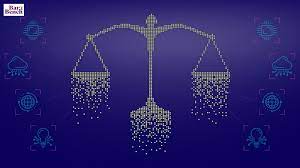Unveiling the Future of Brain-Computer Interfaces: Neuralink’s Groundbreaking Achievement

In a groundbreaking development that has captured the imagination of the scientific community and the public alike, Neuralink, the neurotechnology company founded by Elon Musk, has achieved a remarkable milestone: showcasing the first brain-chip patient playing online chess. This unprecedented feat marks a significant leap forward in the field of brain-computer interfaces (BCIs), offering a glimpse into a future where humans and machines seamlessly interact through the power of thought. In this comprehensive analysis, we delve into the implications of Neuralink’s achievement, the potential applications of BCIs, and the ethical considerations surrounding this transformative technology.
Understanding Neuralink’s Breakthrough
Neuralink’s achievement revolves around the successful implantation of a brain-chip into a human subject, enabling them to control a computer interface purely through neural signals. In the demonstration, the patient, equipped with Neuralink’s advanced neural interface device, was able to navigate an online chess game using only their thoughts, marking a significant milestone in the development of BCIs. This groundbreaking accomplishment showcases the potential of BCIs to revolutionize human-computer interaction and unlock new capabilities for individuals with disabilities or neurological disorders.
The Promise of Brain-Computer Interfaces
The emergence of BCIs holds immense promise across a myriad of fields, ranging from healthcare and assistive technology to gaming and entertainment. By bridging the gap between the human brain and external devices, BCIs have the potential to empower individuals with disabilities to regain lost motor functions, communicate more effectively, and enhance their overall quality of life. Moreover, BCIs open up new frontiers in human augmentation, enabling individuals to augment their cognitive abilities, interact with virtual environments, and access information with unprecedented speed and efficiency.
Applications in Healthcare and Rehabilitation
One of the most significant applications of BCIs lies in the realm of healthcare and rehabilitation, where they offer transformative solutions for individuals with neurological conditions or injuries. From restoring mobility and speech in patients with spinal cord injuries to enabling communication for individuals with locked-in syndrome, BCIs have the potential to revolutionize the way we approach rehabilitation and neurological care. By decoding neural signals and translating them into actionable commands, BCIs provide a direct pathway for individuals to interact with the world around them, bypassing physical limitations and unlocking new possibilities for independence and autonomy.
Ethical Considerations and Societal Implications
While the potential benefits of BCIs are undeniable, their widespread adoption raises important ethical considerations and societal implications that warrant careful examination. Issues surrounding privacy, consent, data security, and cognitive autonomy must be addressed to ensure that BCIs are developed and deployed in a manner that upholds the rights and dignity of individuals. Moreover, the equitable distribution of BCI technologies and access to healthcare resources is paramount to prevent exacerbating existing disparities and ensure that the benefits of this transformative technology are accessible to all members of society.
Conclusion: Embracing the Future of Human-Machine Interaction
In conclusion, Neuralink’s achievement in showcasing the first brain-chip patient playing online chess heralds a new era in human-machine interaction, where the boundaries between mind and machine blur in unprecedented ways. The potential of BCIs to enhance human capabilities, revolutionize healthcare, and transform society is vast and far-reaching. However, as we embark on this journey into the future, it is essential to approach the development and deployment of BCIs with careful consideration of the ethical, social, and regulatory implications involved. By navigating these challenges thoughtfully and responsibly, we can harness the full potential of BCIs to improve lives, empower individuals, and shape a more inclusive and technologically advanced future for humanity.




